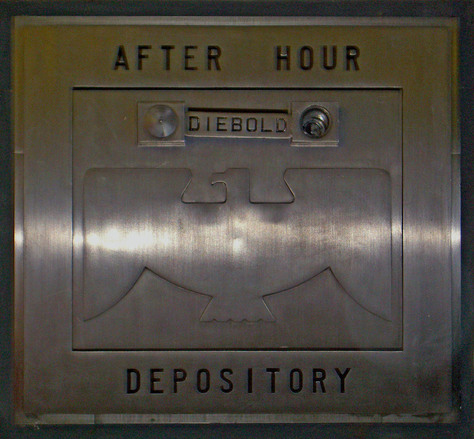

THE US patent system, the USPTO (which also combines another aspect, trademarks), is arguably creating a chilling environment that at times can discourage innovation. This has been a subject of active debate for quite some time because in some domains, such as software, any development work can be done quickly by a single person, to whom it is infeasible to study a lot of patents before undertaking the development work. To make matter worse, because a lot of software is reducible to logic or mathematics, there may not be any workarounds, especially when the patent is so vague that it covers a whole breadth of different approaches (patent on a progress bar for instance).
"To make matter worse, because a lot of software is reducible to logic or mathematics, there may not be any workarounds, especially when the patent is so vague that it covers a whole breadth of different approaches (patent on a progress bar for instance)."The world's prominent patent maximalists (and occasional proponents of patent trolls) promoted the potency of software patents back in September, in spite of Alice. Also see Amanda Ciccatelli's "How the USPTO's “analysis paralysis” changed the software patent game". She said that "As of late, the USPTO has invalidated an increasing number of software patents and denied numerous patent applications that deal with software that’s too abstract. With so much uncertainty about the patentability of software-related inventions, there are steps that patent-seekers take to ensure compliance with €§101."
Looking to this new article from a lawyers' site, it becomes clearer just how some patents can discourage creation, either pre-actively, out of fear, or after the work was already done. To quote: "Receiving a cease and desist letter that alleges patent infringement is becoming more common in today’s competitive business markets and may come as a shock to the recipient, particularly if the sender is unknown to them and the recipient is unaware of the patents referenced in the cease and desist letter. That shock may quickly evolve into an emotional reaction based on an assumption or suspicion that the sender may be a “patent troll”, which may result in the letter being tossed into the garbage."
"Software patents are the weapon of choice of patent trolls and patent lawyers universally like these because they profit from feuds."Software patents are the weapon of choice of patent trolls and patent lawyers universally like these because they profit from feuds. The more litigation, the more business they get. That's just how this market works; companies don't just amass patents for publicity, vanity, etc. as though these are trophies. They use these offensively.
This new article by Tony Dutra speaks of a new story about patent trolls. To quote the gist of it: "A Harvard Business School study released Dec. 9 claims that patents on inventions in the financial services industry score lower on standard measures of quality compared to patents in non-financial fields.
"Professor Josh Lerner and his team looked at patents awarded by the Patent and Trademark Office after the Federal Circuit's 1998 State Street Bank decision opened the door to business method patents. The patents featured fewer citations to other documentation—non-patent literature, leading academic journals, etc.—that is likely to show an exhaustive prior art search for patentability assessments."
"That's just how this market works; companies don't just amass patents for publicity, vanity, etc. as though these are trophies. They use these offensively."According to this new report from the Financial Times, Goldman Sachs "had applied to patent a virtual currency settlement system" (we mentioned this some days ago). The intersection between patents on business methods and on software were previously explored by SCOTUS with the Bilski case.
Justin Blows, an Australian patent attorney, speaks about the recent trolling with encryption patents (patents on software). He called it "the rise of US software patents", but in reality, software patents are a declining market in the US. Blows says that in "the Alice decision, a two-step test for patent-eligible subject matter was created. In a first step, it is considered if the claims are directed to an abstract idea. If so, in a second step it is considered whether the claims have a sufficient "inventive concept" to render the idea patent-eligible. A summary of the two-step test can be found here.
"I do not believe that anyone would dispute that encryption is directed to an abstract idea. In fact, many computer implemented calculations relate to an abstract idea and so this question is particularly interesting."
"...Microsoft and Apple are now lobbying for software patents, not so surprisingly (they both use software patents against GNU, Linux, Free software and so forth)."Software patents are still on their way out (as we have shown here before, with some exceptions). Based on this new report, titled "Court to hear animation case some call broad threat to software patents", Microsoft and Apple are now lobbying for software patents, not so surprisingly (they both use software patents against GNU, Linux, Free software and so forth).
To quote Reuters, "McRO Inc, its attorneys at MoloLamken and Mishcon de Reya, and an industry group that counts Apple Inc and Microsoft Corp among its members, say that a ruling last year from a district court in California canceling McRO's patent puts the software industry in jeopardy."
Interesting to see the litigation/litigious firm which the EPO uses to attack me (Mishcon de Reya) on the same side as Microsoft. ⬆